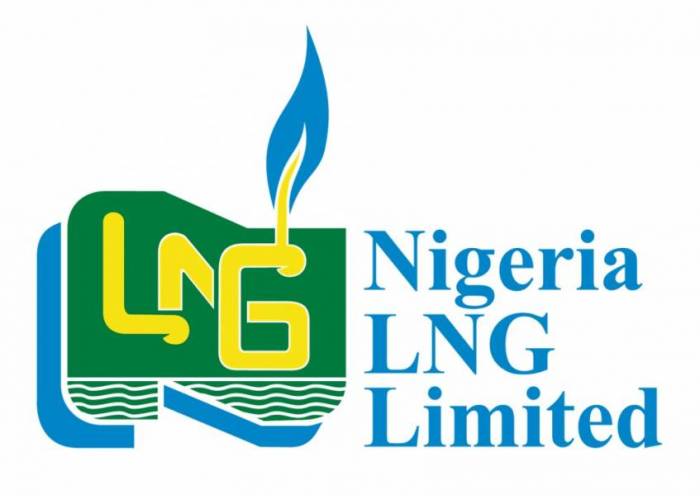When the Liquefied Natural Gas, LNG, Train 6 was completed in 2008, close observers had anticipated that Nigeria would immediately go ahead with the construction of Train 7, expected to increase the LNG output to 30 million metric tonnes, MT per annum, from 22 million MT.

A number of reasons accounted for this expectation. The first is that the Train was widely discussed and embraced as a step in the right direction towards the diversification of the nation’s economy.
Second, previous trains had already launched Nigeria into the league of global exporters, thus justifying additional expansion.
Third, increased investment was also desirable to further reduce or completely eliminate gas flaring in the nation. But this was not to be for the next 13 years, due mainly to some factors, particularly the difficulty of getting all shareholders to commit to participating in the project.
Final Investment Decision
However, many close observers were pleased when the Final Investment Decision, FID, an irreversible commitment to the execution of the project was taken on December 27, 2019, in Abuja with the support of all the Shareholders – Nigerian National Petroleum Corporation, NNPC, Shell Gas B.V., Total Gaz Electricite Holdings France, and Eni International N.A. N.V. S.ar.l – holding 49 per cent, 25.6 per cent, 15 per cent and 10.4 per cent respectively in the project.
Engineering, Procurement, Construction
With the FID taken, the Nigeria LNG Limited, NLNG awarded the Engineering, Procurement, and Construction, EPC contracts for its Train 7 Project to SCD JV Consortium, comprising affiliates of Saipem, Chiyoda and Daewoo on 13th May, 2020.
In its Factsheet obtained, weekend, the company stated: “The execution of the EPC contracts triggered the commencement of the Detail Design and Construction phase of the project, expected to increase the capacity of NLNG’s current six-Train plant by 35 per cent from the extant 22 million tonnes per annum, mtpa to 30mtpa.
“The search for an EPC contractor for Train 7 began in July 2018 with the signing of Front End Engineering Design, FEED with two consortia in a Dual FEED Process.
“The consortia, B7 JV Consortium, and SCD JV Consortium, participated in the Dual FEED Process which led to their bidding to construct the train.
“In September 2019, NLNG took a significant step towards the FID with the issuance of a Letter of Intent for the EPC Contracts of the Project to SCD JV Consortium.
“The Letter of Intent expresses the intention of the company to award the EPC Contract for the Train 7 Project, subject to the signing of the terms, to the preferred bidder after a contracting process that has been transparent, and in full compliance with all applicable laws and good industry practices.”
The Factsheet, which noted that the construction commenced, following the flag-off of the project on June 15, 2021, added: “The foundation stone was laid on behalf of President Buhari, who flagged the project virtually, by the Honourable Minister of State for Petroleum Resources, Timipre Sylva, supported by the Executive Governor of Rivers State, Nyesom Wike, represented by Deputy Governor, Dr. (Mrs.) Ipalibo Harry Banigo; the Amanyanabo of Grand Bonny Kingdom, His Majesty, King Edward Asimini William Dappa Pepple III, Perekule XI; Group Managing Director of Nigerian National Petroleum Corporation, NNPC, Mr Mele Kyari; the Chairman, NLNG Board of Directors, His Majesty, Dr Edmund Daukoru, NLNG’s Managing Director/CEO, Mr Tony Attah; and NLNG’s Deputy Managing Director, Mr Sadeeq Mai-Bornu, amongst others.
Speaking at the event, President Buhari, who stressed its importance, said: “I am proud that NLNG, as the pioneer LNG company in Nigeria, has conscientiously proven the viability of the gas sector over the years, currently contributing about one per cent to our country’s GDP.”
Benefits of Train 7
In terms of benefits, the Factsheet noted that: “Train 7 means growth for the Nigerian oil and gas industry. Over USD10 billion is expected to be invested in Train 7 and the upstream scope of the LNG value chain which will open up new development opportunities in the industry and boost Nigeria’s Foreign Direct Investment, FDI profile as well as the confidence of foreign investors.
“The project is anticipated to create more than 12,000 new jobs during the construction stage, and on completion, it will help to further diversify the revenue portfolio of the Federal Government.
“It will also increase its tax base. The project will also support the development of local engineering and fabrication capacity.”
Local Content
It also stated: “Nigeria LNG Limited, NLNG prides itself on its contribution, since the construction phase of its base trains, Train 1 and 2, to the development of Nigerian Content in the oil and gas industry. NLNG is again, fully committed to Local (Nigerian) Content development on its Train 7 Project.
“In March 2019, NLNG and the Nigerian Content Development and Monitoring Board, NCDMB signed off the Nigerian Content, NC Plan for NLNG’s Train 7 project which will ensure the delivery of value and benefits to the Nigerian economy.
“Working closely with NCDMB, this project is committed to giving first consideration to Nigerian indigenous service providers and manufacturers of goods without compromising business ethics, HSE, and quality at a competitive price.
“The Train 7 project is anticipated to create more than 12,000 direct jobs at the peak of construction.
“The project will also support the development of local engineering and fabrication capacity in the country.
“The total in-country engineering man-hours is set at 55 per cent, while 55 per cent of all procurement for the execution of the project will be done by Nigerian vendors. In addition, 100 per cent of all installations and construction will happen in Nigeria.
Support InfoStride News' Credible Journalism: Only credible journalism can guarantee a fair, accountable and transparent society, including democracy and government. It involves a lot of efforts and money. We need your support. Click here to Donate
